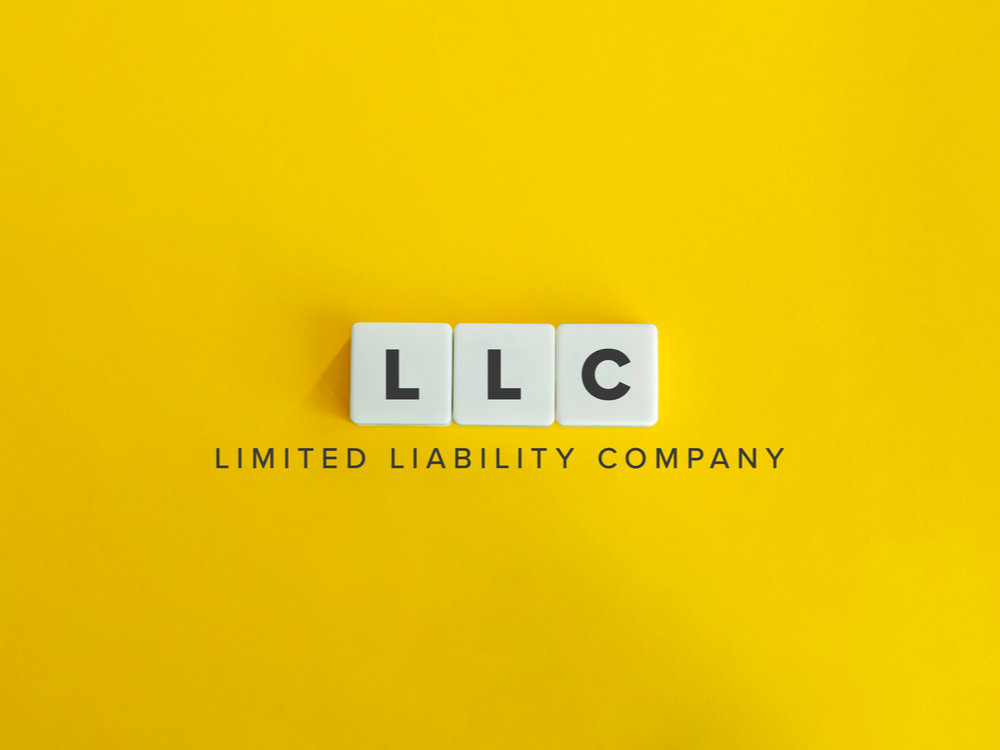So, you’re debating between forming a sole proprietorship or a limited liability company (LLC). First off, congratulations! You’re already asking the right questions.
Choosing the right business structure for your startup can make a huge difference when it comes to tax savings, flexibility, and regulations. Fortunately, sole proprietorships and LLCs keep it all relatively simple.
This article will walk you through everything you need to know to decide between forming an LLC or a sole proprietorship. We’ll cover key differences, tax-saving opportunities, and how to make it happen.
Sole Proprietorship vs. LLC: What’s the Difference?
What’s a Sole Proprietorship?
A sole proprietorship is the most basic business structure. It’s also the easiest to set up, and that’s because you don’t have to do anything. You don’t need to file any paperwork or tell anyone you’re forming a sole proprietorship—as soon as you start earning money, you’re a sole proprietor.
Boom. Done. Good work.
In the eyes of the government, you and your business are one and the same. There’s no difference. As a sole proprietor, you’ll pay your business income tax through your personal tax return. You’ll report your business income and loss on a Schedule C when filing that return. That’s it.
Sounds simple, right? It is. That’s why most freelance businesses and solopreneurs begin their entrepreneurial journey as sole proprietors. However, there is one significant downside.
Sole proprietorships offer no liability protection.
No liability protection means if your business is sued, your personal assets are at risk. Remember: in the eyes of the government, you and your business are one and the same.
If you’re going to be running a sole proprietorship and want protection, consider getting solid business insurance. Still, this only protects your personal assets from lawsuits based on liability—it won’t save your house if creditors chase you down.
While you don’t have to do anything to form a sole proprietorship, you should follow a few best practices to protect yourself:
Separate your finances: Don’t mingle your business and personal finances. Open a bank account for your business income and expenses.
Obtain licenses and permits: The federal, state, county, or city governments might require licenses or permits for your type of business. Get them ASAP.
Secure a fictitious business name certificate: If you operate under a name different than your own, your state will require you to register your fictitious business name (FBN).
Benefits of a Sole Proprietorship
- Simple to set up: You don’t legally have to do anything. There are no incorporation or filing fees.
- Easy tax filings: You submit your income and expenses on your personal tax return—no separate business-specific return necessary.
- Flexible structure: More formal business structures (like corporations) require you to have things like annual meetings, shareholder votes, and formal reviews—not so with a sole prop.
- Easy record keeping: While it’s wise to separate your business and personal finances, you’re not obligated to do so.
Downsides of a Sole Proprietorship
- No liability protection: You’re personally liable for business debts—and you’ll also be held responsible if your product hurts someone or someone gets hurt on your property. This means that a vendor, customer, or lender can seize your personal assets to satisfy financial obligations. Not good.
- Inevitable end to your business: As a sole proprietor, your business lives and dies with you. If something happens to you, your business is terminated. That’s not the case with an LLC or corporation—your business survives you.
- No payroll: Sole proprietorships can’t hire full-time or W2 employees. However, you can still hire 1099 freelancers and contract workers.
What’s an LLC?
A limited liability company is a legal entity that’s separate from its owners (aka, you). That means you get liability protection with an LLC. When a customer or lender sues your LLC, they’re suing the business—not you personally.
In other words, it’s a good idea to have an LLC for liability protection. Even if you’re a sole proprietor without any assets to lose, a judgment could follow you until you do have assets. For some states, that judgment can be enforced for as long as 20 years. Yikes.
You get to choose how you’re taxed as an LLC. Common ways include:
- Disregarded entity: Single-member LLCs are taxed as a disregarded entity by default. This means you’ll file your business income taxes through your personal tax return, just like you would as a sole proprietor.
- Partnership: Multi-member LLCs split the taxes by using an IRS Form 1065 and a Schedule K-1.
- S corp: LLCs that elect to be taxed as an S corp avoid paying self-employment tax on profits and can deduct payroll taxes and wages it pays to you (since you’re technically an employee) as business expenses.
How to Form an LLC
Forming an LLC is a bit more complicated than forming a sole proprietorship—mainly because you actually have to do something:
- Find the perfect name: Come up with a great name for your business. You’ll need to include the abbreviation LLC in your name. Search the USPTO’s trademark database to ensure the name’s not already taken.
- Choose a registered agent: A registered agent accepts legal and tax documents on behalf of your business. This could be you, your attorney, or even your CPA.
- File your Articles of Organization: Visit your state’s Secretary of State website to file your Articles of Organization.
- Obtain an EIN: Your EIN (employer identification number) is the tax ID the IRS assigns to your LLC—it’s like a Social Security number for your business. Apply for an EIN on the IRS website for free.
- Open a bank account: Unlike a sole proprietorship, you need to keep your finances separate. Open a separate business bank account using your EIN.
- Secure licenses and permits: Obtain any relevant business licenses or permits required by your state, county, or city.
Benefits of an LLC
- Liability protection: You and other members of the LLC are not personally liable for the business. You and your business are separate.
- Tax savings: If you want to keep things simple, you can file taxes as a pass-through entity. However, if you want to score additional tax savings, you can file as an S-corp to avoid paying self-employment taxes on business profits.
- Management flexibility: Your LLC can be managed by the owners (members) or by an appointed manager (employee). If you later want to hand over the day-to-day decision-making to an individual, an LLC gives you the power to do so.
- Simple and affordable: You’ll have to pay a few fees to file for an LLC, but that’s it. The setup is easy, and the upkeep is minimal. It’s not as simple as forming a sole proprietorship, but it’s pretty straightforward. You can do it on your own, but it’s best practice to hire a lawyer or accountant to ensure you do it right.
Downsides of an LLC
- Liability protection caveats: It’s called a limited liability company for a reason. There are quite a few caveats to your protection. Judges can overrule your liability protection through an action called “piercing the corporate veil.” If the court finds no real separation between you and your LLC, then the plaintiff can “pierce the corporate veil” and go after your personal assets. This can happen if you commingle personal and business finances. Avoid this mistake by separating bank accounts and credit cards for your personal use and business use.
- Self-employment tax: Unless you opt to be taxed as an S-corp, you’re going to have to pay self-employment taxes. If you do opt to be taxed as an S-corp, then you’ll only pay self-employment taxes on your compensation (not the whole of the company’s pretax profits).
- Member turnover risks: Many states require your LLC to dissolve if a member leaves, dies, or goes bankrupt. You’ll have to start a brand-new LLC, and you and the remaining members will be legally and financially responsible for the obligation to terminate the existing business.
Don’t Make Things Unnecessarily Complicated
You might’ve been around the Google block searching for this and that about saving money. You may have stumbled across some tips telling you to incorporate your business in a different state, like Delaware. Sadly, that tip doesn’t really apply to you.
Those tax benefits refer to publicly traded or multi-state corporations. If you’re forming an LLC, there’s no reason to form it in another state. Incorporate your business in the state you live and operate in to keep things simple.
Should You Hire an Attorney or an Accountant?
You don’t need any help forming a sole proprietorship—it’s done for you as soon as you make your first sale. If you’re forming an LLC, you can complete the entire process on your own. However, it might be nice to have a little bit of help.
Hiring an attorney to incorporate a business is not required, but it is strongly recommended. If you’re concerned about tax savings and protecting your assets, you’ll want to consult an attorney or CPA—or, better yet, consult with a tax attorney who’s savvy on both regulations and finances.
They’ll help you know when it’s time to tax your business as an S-corp, and they can help you stay up on your quarterly tax estimates.
Some attorneys will charge a minimal rate to give you the know-how to form an LLC on your own, while others will complete the entire process for you with flat-rate packages. Figure out how much hand-holding you’d like, and shop around to get some estimates.
Need help finding an attorney or a trusted CPA? Talk to your friends in the entrepreneur world—chances are they have (or had) someone they could trust.
Which Business Structure Is Right for You?
It depends. We’re not legal consultants or financial advisers, so we can’t decide for you. We can only present the facts and let you come to an ultimate decision for yourself.
A sole proprietorship is undoubtedly the easiest to set up, as it doesn’t require any paperwork. Yet it lacks liability protection. An LLC requires filing Articles of Organization with the state, but it’ll protect your personal assets should you get sued (as long as you maintain your corporate veil).
Regardless of which entity type you choose, there are a few best practices that’ll help you out:
- Separate your finances: It might not be required, but it’s best practice (even if you form a sole proprietorship). Keep your finances separate from the get-go to make tax season a breeze. Plus, it’ll be a godsend in the off chance you get audited.
- Come up with a good business name: Take the time to research and create a name you’ll be proud to put on your website, social media profiles, and potentially building signage.
- Get your permits: Don’t wait to get in trouble. Do your due diligence and obtain the necessary licenses and permits relevant to your industry and geographic location.
Start Your Business on the Right Foot
Don’t let all the paperwork slow down your business launch. Join our free masterclass to learn how to start an online side hustle in 30 days or less.
We’ll walk you through everything you need to know to turn your existing skills into a profitable business. Daniel DiPiazza, a 7-figure side hustler pro, will show you his step-by-step method for growing a startup with no capital and no prior experience.
Join now to start your brand-new business on the right foot.


















